Gijs van Herk stopped cultivating iceberg lettuce 20 years ago. He began growing strawberries instead. But he wanted to do things differently. This Dutch fruit grower wanted to move away from the inevitable downward price spiral that comes with iceberg lettuce farming.
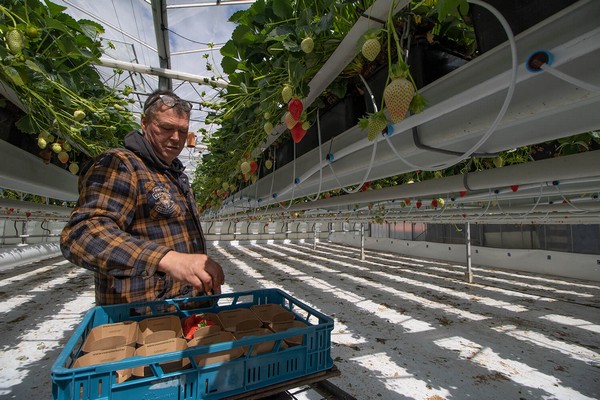
He opted for selling his strawberries directly to consumers at a fair price. Gijs doesn’t have stunted or sky-high prices. He sells pretty much all of what he grows at his farm stores, directly to the public. He cultivates strawberries, raspberries, and cherries. He sells these as well as jams and juices, produced from his fruits.
A small quantity goes to the local greengrocer or supermarket. But even there, the grower has direct contact with his customers. That’s a different way of doing business, he says. “Having direct contact with people lets you know if things are going right, right away.” You also don’t need to consider size or shelf life. That’s important when you supply large retailers.
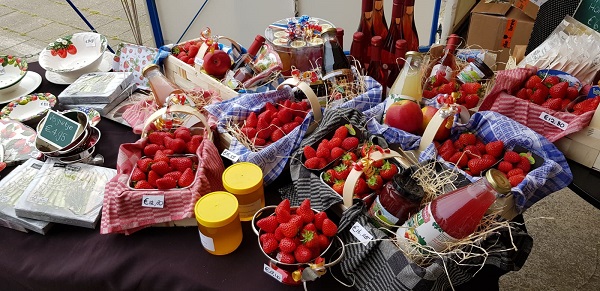
“Our products are always fresh. They reach our stores three minutes after being harvested. These are high-quality, packaged strawberries. They have larger and smaller fruits in the same container, as nature intended. Because people buy strawberries because they enjoy them,” Gijs says.
He likes explaining this to his clients. Gijs says there are many questions during his well-attended open days and cherry festivals. “In the last seven years, people have increasingly wanted to know the story behind the product. There are more young families with children who prefer healthy, local products.”
Flavor and sustainability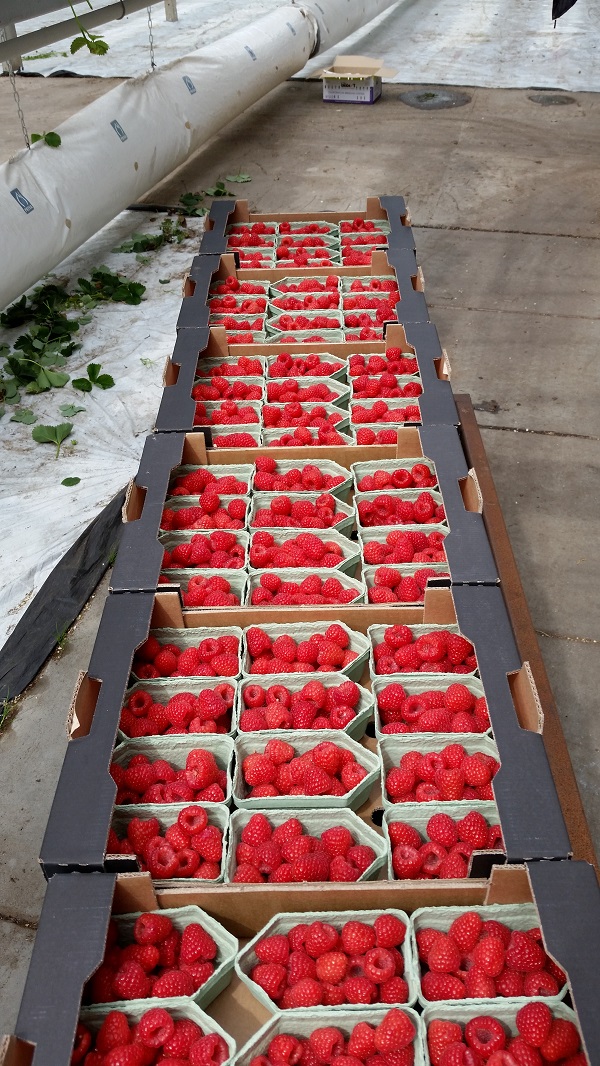 Once Van Herk Fruit decided on farm store sales, Gijs wanted to do it right. His two stores are open six days/week, from 9 a.m. to 6 p.m., mid-March to November. “We’ve professionalized the country store.” Gijs grows strawberries in glass and cold greenhouses and outdoors on racks. Flavor is vital. “We don’t grow the common varieties. People have to come to my stores for these strawberries. They’re not only always fresh but must also excel flavor-wise.”
Once Van Herk Fruit decided on farm store sales, Gijs wanted to do it right. His two stores are open six days/week, from 9 a.m. to 6 p.m., mid-March to November. “We’ve professionalized the country store.” Gijs grows strawberries in glass and cold greenhouses and outdoors on racks. Flavor is vital. “We don’t grow the common varieties. People have to come to my stores for these strawberries. They’re not only always fresh but must also excel flavor-wise.”
This is achieved by choosing varieties that are just as productive as the common varieties in the long run. But they don’t have high production peaks. The plant’s sugar distribution – over a few or many plants – makes all the difference when it comes to flavor. When selecting a variety, flavor is, therefore, decisive. But the variety must also fit in with the circular horticulture that Gijs advocates.
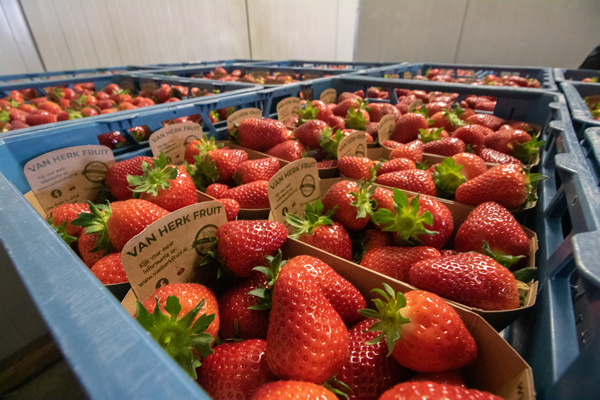
“We grow sustainable varieties using no root treatments and very few crop protection substances.” He can’t make the step to organic cultivation. In the Netherlands, substrate cultivation simply isn’t considered organic. He likes keeping the option to intervene if necessary open too. The grower sees this as more sustainable than the standard use of biological agents.
Packaging
This focus on sustainability is reflected in the 100% cardboard packaging that was developed for the company. “Our very sustainably grown strawberries were packaged in plastic. We wanted to change that.” The Re-Fruiter Tray was developed in collaboration with Fonkels Innovative Packaging. This packaging is made of 100% FSC certified recycled cardboard. “We develop everything in the client’s service. They can seamlessly integrate the product into their processes,” says Wim Apeldoorn, general manager of Fonkels.
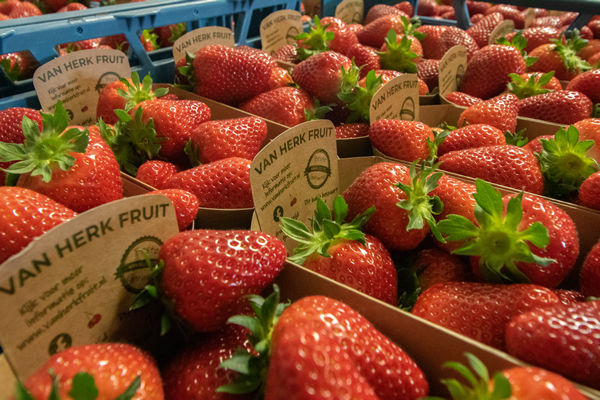
For this tray, strength and protecting the fruit were specifically important. That’s because it becomes moist during cooling, which can soften the cardboard. Wim explains that the container has a unique, slitted bottom. That makes the bottom springy. The strawberries’ weight, therefore, doesn’t damage the fruit lying at the bottom. The tray has feet, so the bottom of the container isn’t rigid. And its edges are folded over. So they aren’t sharp and thus can’t damage the fruit.
The packaging comes in 250, 400, or 500g sizes. From a sustainability perspective, Gijs finds it a pity that supermarkets are increasingly using 400g packaging. That’s instead of the standard 500g strawberry trays. “That makes it easier to stunt prices. It also means that you need the same amount of packaging and transport for 20% fewer strawberries. Growers also have more work then. That’s not more sustainable,” he concludes.
Gijs van Herk
Van Herk Fruit
info@bestfresh.nl
www.vanherkfruit.nl
Wim Apeldoorn
wim@fonkels.com  Fonkels
Fonkels
Nijverheidstraat 22
6681LN Bemmel
+31 (0)26 7470008
info@fonkels.com
www.fonkels.com


